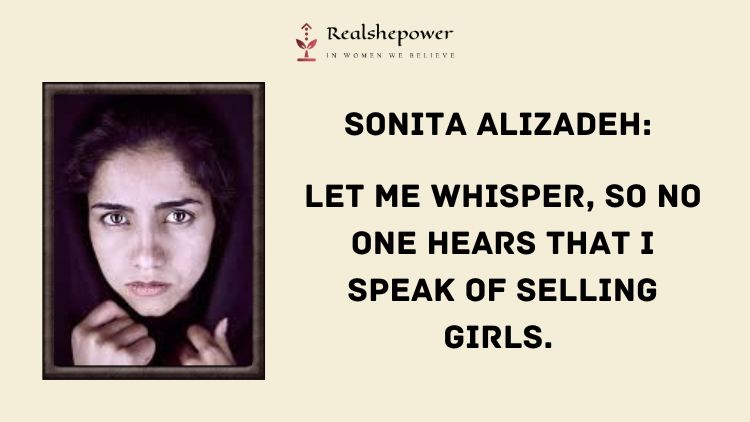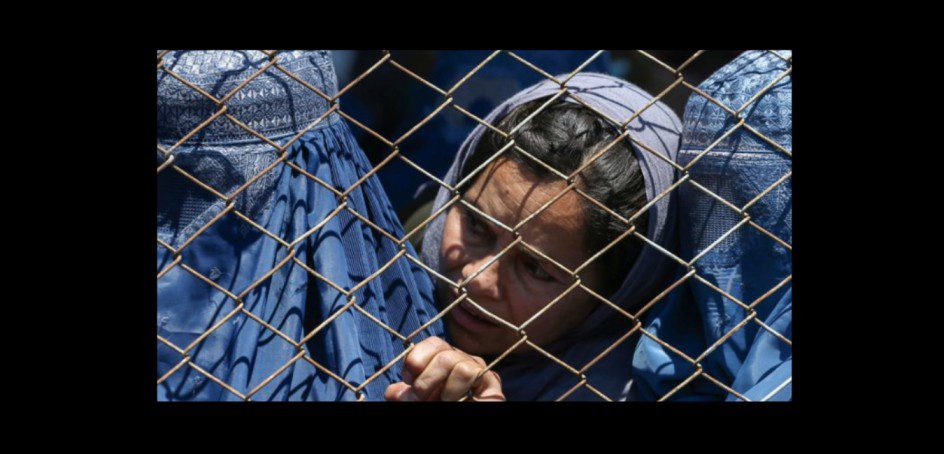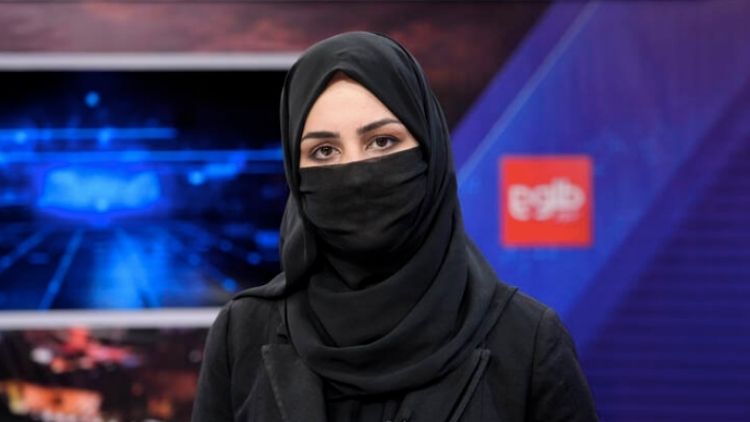Sonita Alizadeh’s “Daughters For Sale”


Let me whisper, so no one hears that I speak of selling girls. My voice shouldn’t be heard since it’s against Sharia. Women must remain silent… this is our tradition.
Sonita Alizadeh is an Afghan rapper, and if you don’t think rap and activism go together, you probably haven’t heard of her. By the time she was 16, her family had twice nearly forced her into marriage; the first time, she was only ten years old.
“I scream to make up for a woman’s lifetime silence,” Alizadeh raps in “Daughters for Sale.”
I scream on behalf of the deep wounds on my body. I scream for a body exhausted in its cage — a body that broke under the price tags you put on it.
Sonita Alizadeh was born in Afghanistan in 1996, a time when the country was under Taliban rule. Her childhood was very challenging, and life was dangerous every day. She was just 10 years old when her family attempted to sell her to a man who wanted to marry her—a very typical occurrence in far too many countries around the world. Thankfully, the agreement was later abandoned.
By the time Alizadeh was 14 years old, her family and her had to walk hundreds of kilometres to Iran in order to flee the Taliban. She had to clean offices and restrooms to support her family because she was unable to attend school without legal paperwork. Fortunately, Alizadeh found a love for writing and art and started experimenting with pop music thanks to a group that offered basic education to young Afghan refugees in the region. She created her first rhyme, which was about child labor, after hearing an Iranian rapper on the radio. She had no choice but to speak up, even though it was against the law for women to sing in Iran.
She started questioning authority again in her new home. She recorded songs about being a refugee, the Afghanistan war, and being a young woman despite a ban that forbade women from singing. She even won $1,000 in a U.S.-based competition for a music video encouraging young Afghans to vote, defying her family’s view that girls have no economic prospects.
All of this did not deter her parents from arranging the marriage. Her mother, who had returned to Afghanistan, told Alizadeh to go home to meet her prospective husband. They claimed they required the cash so that her brother could purchase his own bride. But Alizadeh turned to her preferred art form, rap, to express her outrage at this exploitation of girls.
It’s like I have no voice. I’m full of doubts. If I’m a prisoner, why are there scars of whips on my body? I don’t understand why your tradition is that a woman should remain silent. Tell me what to do to prove my existence.
Her outrage and rebellion came from witnessing the gradual disappearance of her friends from her class as they were compelled to marry older men. And now, at 16, she was instructed to be sold into marriage because her family needed the money to support her brother’s wife. She was worth $10,000 as a bride. In an act of defiance, she created the rap song “Daughters for Sale,” and with the aid of a filmmaker, she also created a music video that gained 1.4 million views on YouTube. Alizadeh was able to use rap music to share her voice, tell her narrative, and draw attention to the serious consequences of child marriage.
The video went viral, igniting a global conversation on the subject and inspiring more girls to speak up about their own experiences. Sonita’s family eventually caved in and agreed that she didn’t have to get married.
Leave me alone. I hate to make up. No make-up can heal a bruised face. Even Kafir* won’t do what you did (to me) to a Muslim.
*Kafir: a person who is not a Muslim.
Since then, the video has motivated several Afghan women. The song became an anthem against child marriage and attracted the interest of a nonprofit organization called Strongheart.
Alizadeh moved to the United States with the help of Strongheart in 2015. And the rest is history. Or, more accurately, it’s only the beginning. She now receives the formal education that women in Afghanistan are denied. She has appeared in over 200 media outlets in 20 countries. She appears in an award-winning documentary about her life, which premiered in Europe. She has spoken on global stages, met world leaders, and performed in front of international audiences.
She currently resides in New York and is a member of the Bard College Class of 2023. She continues to be a fervent supporter of women and girls in addition to her academics and songwriting. She has assisted in creating a child marriage curriculum used by more than a million students. Alizadeh spoke before the United Nations regarding child marriage and girls’ education the same year she was named to the Forbes 30 Under 30 Asia List in the entertainment and sports category.
Through her music and campaigning, Alizadeh hopes to encourage people to reevaluate harmful and degrading customs. She has big goals and is fighting to change the ideologies, practices, and institutions that prevent girls from achieving their full potential.
The 2022 Lavazza calendar, with the theme “I can change the world” features Sonita Alizadeh, as one of the 12 people.
If I can alter [my parents’] minds with my music, then perhaps I can change the world.Sonita Alizadeh
More on Afghanistan



